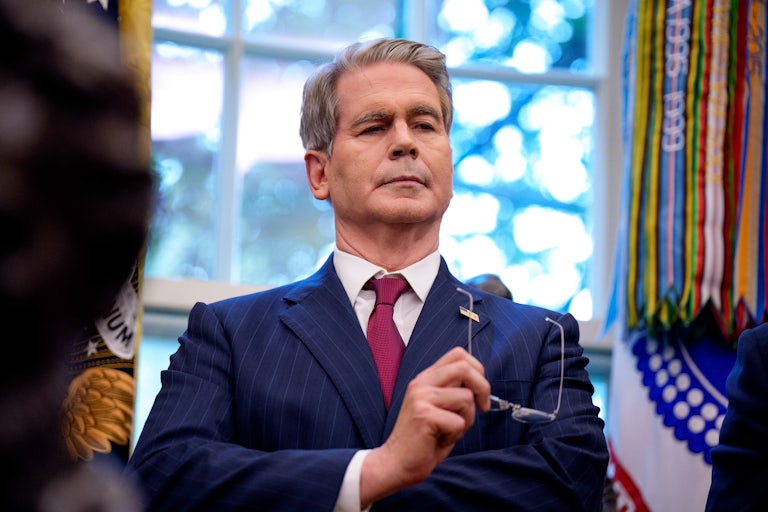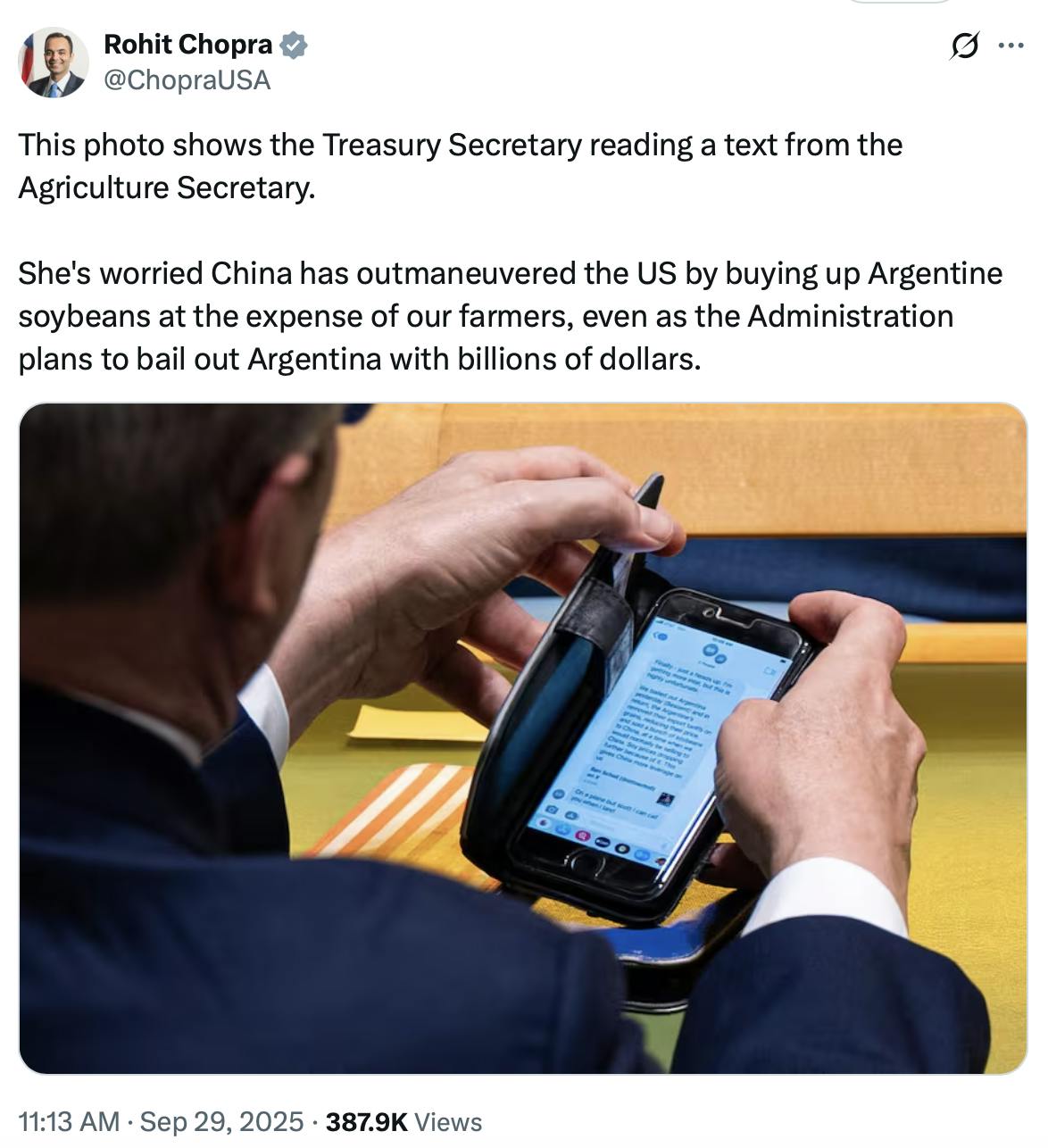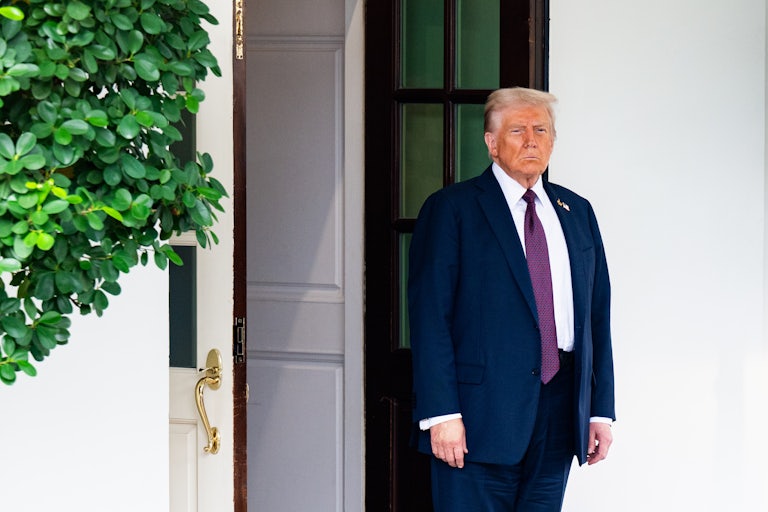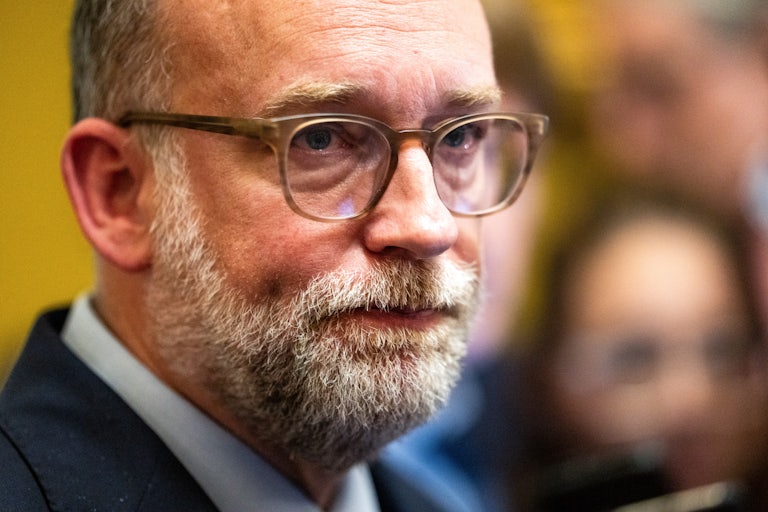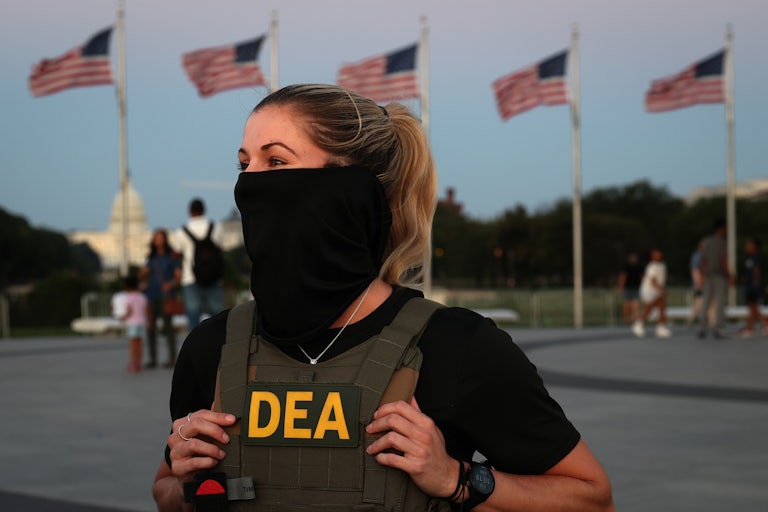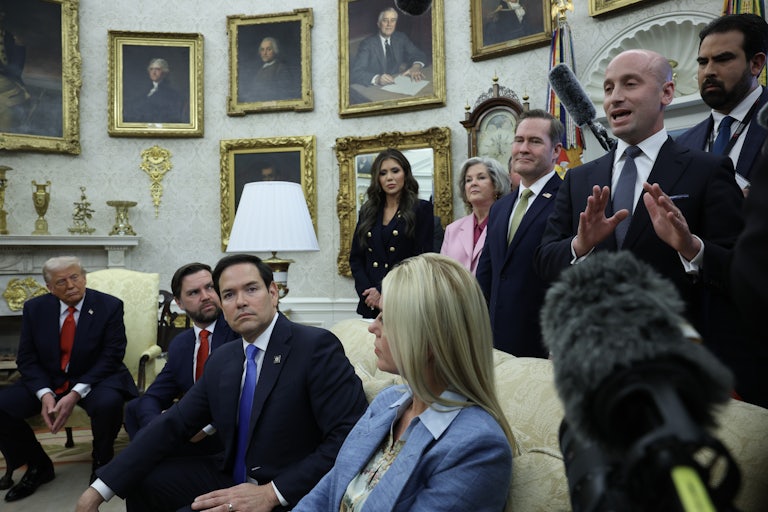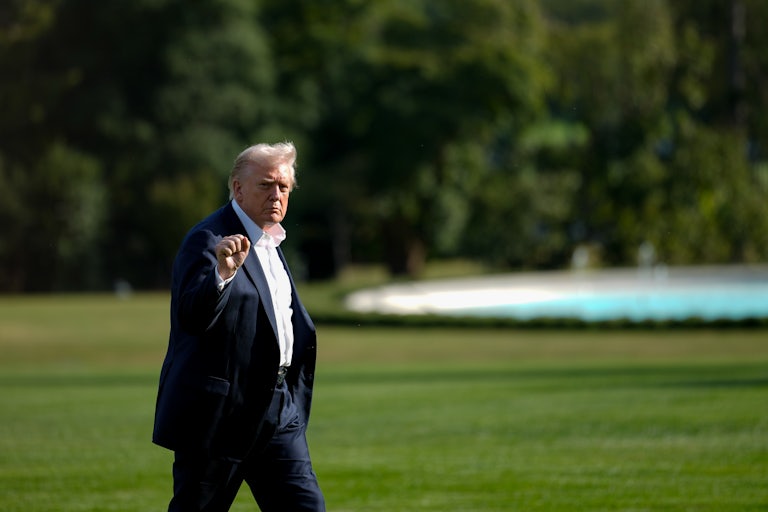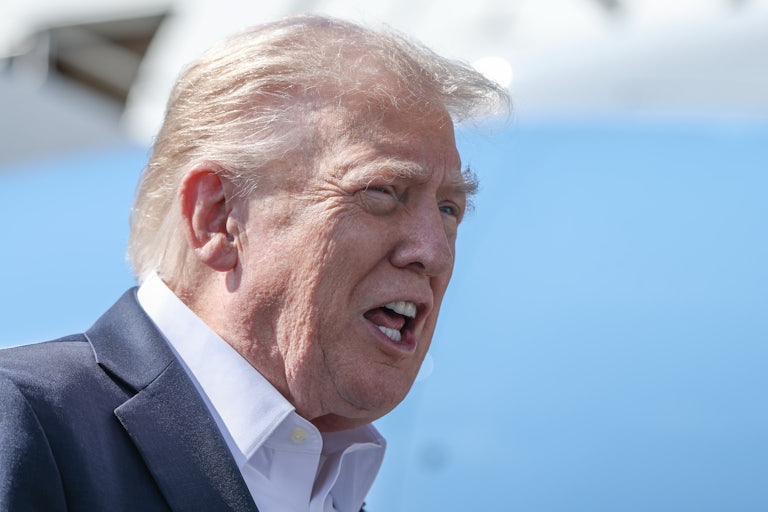Trump’s Massive Argentina Bailout Set to Benefit One GOP Billionaire
Like everything else with this administration, Trump’s decision to extend a lifeline to Argentina involves corruption.
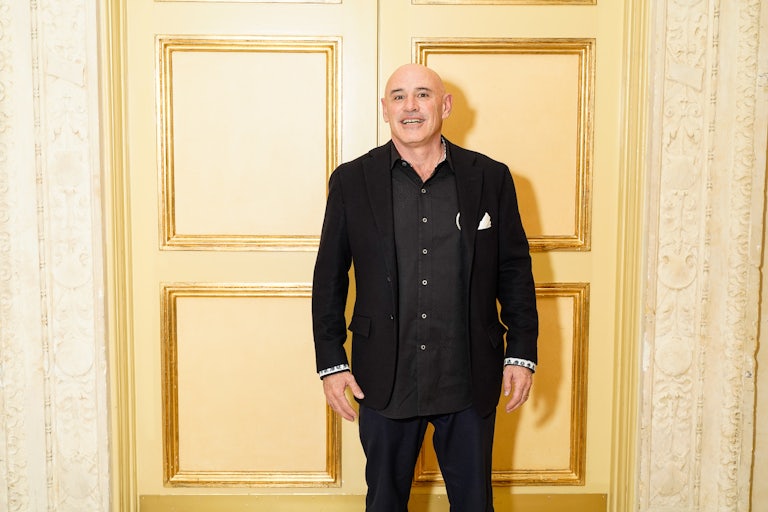
Treasury Secretary Scott Bessent’s $20 billion Argentinian bailout is not only poised to prop up President Javier Milei’s anarcho-capitalist regime with U.S. taxpayer dollars; it’s also set to deliver a significant windfall to one of Bessent’s old friends, per a Monday report by Judd Legum at Popular Information.
Robert Citrone, a billionaire who founded the hedge fund Discovery Capital Management, has a decadeslong relationship with Bessent that’s gone unreported in the U.S. press.
Legum cites descriptions in Latin American business publications of Bessent and Citrone’s friendship, including one paper that notes their “personal relationship as well as a past working relationship.” He also reports that when they were co-workers at Soros Fund Management, Citrone, by his own account, gave Bessent highly profitable investment advice.
Since Milei’s ascendance, Citrone has bet big on the Argentine economy. But amid the recent economic downturn under Milei, his Argentine investments were in trouble.
Enter Bessent. Last week, the treasury secretary announced a $20 billion currency swap line that, Citrone told Bloomberg, “has helped tremendously” and “will pay dividends for the U.S. strategically.” It’s certainly boosted Citrone’s holdings. (Notably too, Legum writes, “In early September, days before Bessent’s announcement, Citrone purchased more Argentine bonds.”)
This wasn’t the first time the U.S. treasury secretary has seemingly pleased Citrone by acting on Argentina’s behalf.
Legum, citing the financial publication CE Noticias Financieras, reports that Citrone lobbied Bessent to push for a bailout from the International Monetary Fund in April, as the country’s economic woes grew. Bessent then reportedly helped persuade the IMF to disburse $20 billion to Argentina, which still failed to stabilize its economy, thus setting the stage for America’s own $20 billion intervention.
